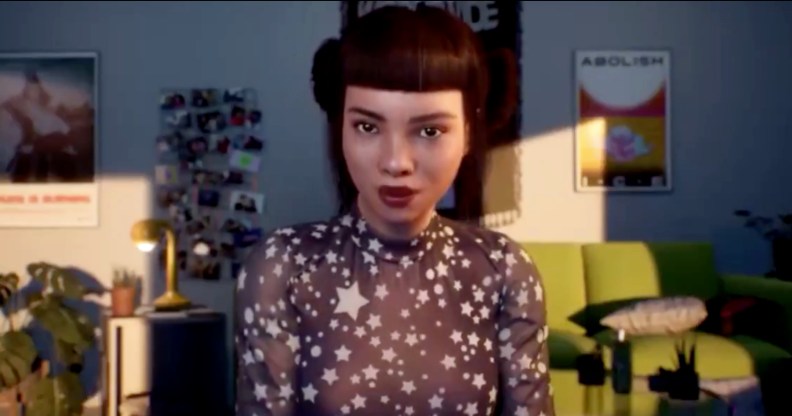A CGI and completely fake influencer claims she was ‘sexually assaulted’ and people are well and truly p****d

The computer generated Lil Miquela claimed to have been sexually assaulted in a rideshare. (Twitter)
Lil Miquela, a made-up CGI influencer, has told a story online about being “sexually assaulted” and the internet is having none of it.
An avatar dubbed the “first virtual influencer”, Lil Miquela first appeared on Instagram in 2016 and now has 1.8 million followers. She is presented as a person of colour, and it has been implied that she is LGBT+.
Theories about why she was created ranged from a bizarre social experiment to advertising for clothing brands, and she has even released her own music.
Felt cute, won't delete ? pic.twitter.com/UY2fS1Dy4E
— Miquela (@lilmiquela) September 9, 2019
Her instagram bio describes her as a “change-seeking robot” and she has proclaimed her support for causes like Black Lives Matter and LGBT+ rights.
Although “transmedia studio” Brud has admitted to creating her, and she does advertise a lot of products, her true purpose remains somewhat of a mystery. Brud’s website is nothing but a Google Doc.
Lil Miquela has continued to grow in popularity but last week the “robot”, or her creators, made a big mistake.
She posted a vlog in which she described being sexually assaulted by a man in a rideshare, and it went viral on Twitter.
The computer-generated influencer said that the “threatening” man touched her leg and asked her inappropriate questions before she escaped the car.
She said: “Sure enough, I just feel this guy’s cold, meaty hand touch my leg as if he was confirming I’m real. His hand literally lingers there, rubbing my skin.”
She added that he asked her about “down there”, and that she had to ask the driver to pull over so she could get out of the car in the middle of a highway.
Social media users were seriously angry about an influencer who doesn’t even exist claiming to have been sexually assaulted.
One wrote: “Absolutely f**king not. ABSOLUTELY F**KING NOT. A virtual project telling me some story of an unreal sexual assault pisses me off just as much as when women lie.
“It’s a fabrication. A dangerous one. There are ways to make @lilmiquela relatable. This isn’t one of them.”
Absolutely fucking not. ABSOLUTELY FUCKING NOT. A virtual project telling me some story of an unreal sexual assault pisses me off just as much as when women lie. It's a fabrication. A dangerous one. There are ways to make @lilmiquela relatable. This isn't one of them. https://t.co/zFPdXjTgzW— Anna Davenport (@disturbance_atd) December 13, 2019
Another wrote: “It’s like whoever is behind this character obviously went through so much to make her as relatable as possible… They were like ‘to make her more realistic, let’s pretend she was sexually assaulted’.”
Oh god found out shes lgbtq too???— ??bright?? (@lavalightss) December 14, 2019
Others pointed out that her creators seemed to have “preyed” the very real experiences women of colour and LGBT+ people.
Earlier this year, a survey of trans and non-binary US teenagers found that more than a quarter had been sexually assaulted in the last year.
A study in the UK found that over one fifth (21 per cent) of LGBT+ women had experienced sexual assault at work, for example unwanted touching or attempts to kiss them. This number jumped to more than half (54 per cent) of LGBT+ BME women.

